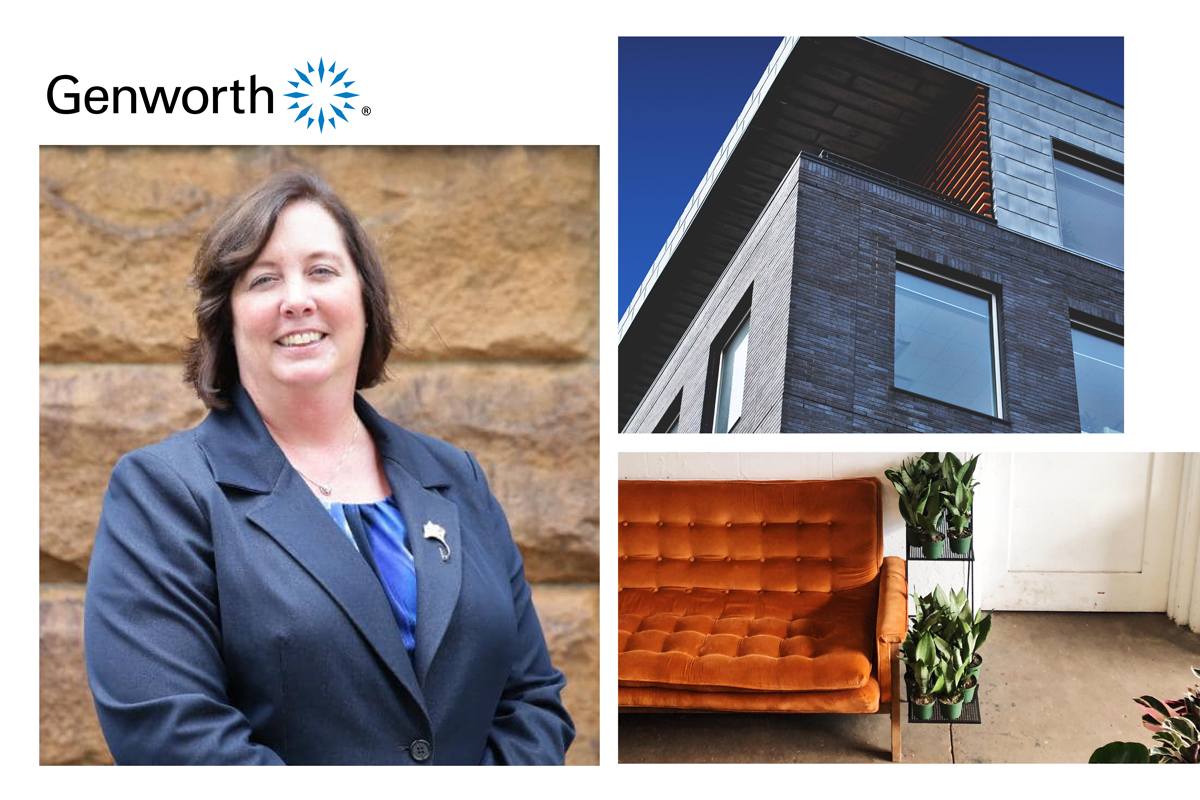
A CEO On What It Really Takes To Be A Modern Leader
Georgette Nicholas, CEO of Genworth Mortgage Insurance Australia, recently spoke with the Future Women Academy team about creating an engaged and diverse workforce where people don’t have to fit a leadership mould.
Speed Read
- Georgette Nicholas is the CEO of Genworth Mortgage Insurance Australia, a leading provider of lenders mortgage insurance (LMI) in Australia.
- Genworth has been recognised by the Workplace Gender Equality Agency (WGEA) for its ambitious diversity and inclusion agenda.
- The Genworth Board has publicly committed to measurable gender targets in all management roles.
Genworth is a leading provider of lenders mortgage insurance (LMI) in Australia, helping people get into their homes sooner. Genworth is well respected in corporate Australia for its progressive workplace culture, ambitious gender targets and embedded flexible work policies.
For four consecutive years between 2015 and 2018, Genworth has been recognised by the Workplace Gender Equality Agency (WGEA) as an Employer of Choice for Gender Equality. Georgette Nicholas, CEO, is also a WGEA Equal Pay Ambassador.
Genworth’s Board has publicly committed to measurable diversity and inclusion objectives, including:
- 40 per cent female representation on the Board;
- 40 per cent female representation on the Senior Leadership Team;
- Minimum 40 per cent female representation in other management roles;
- Gender diverse candidate slates for all roles.
They’ve achieved these objectives on the Board (currently at 44 per cent) and SLT levels (43 per cent). Women currently represent 38 per cent of other management roles and 44 per cent overall.
Georgette Nicholas recently spoke with us about their diversity and inclusion strategy, and why it is so important to Genworth.
Why is diversity important to Genworth?
“Genworth has worked hard to establish it as one of our core values and as part of the culture, to create an environment where people feel included and they feel safe to express their opinions, ideas and thoughts. We’ve found that it results in better business outcomes – you get better debate around the table and around what the issues are. I think we find more innovative solutions because of those differences of opinion and backgrounds that people bring.”
“I think it’s also allowed us to really create a more engaged workforce, where people feel like they can be their true self, they can be authentic, they don’t have to fit a mould or try fit into how somebody else wants them to speak or talk. So, for us, it’s really been about creating that environment that allows that to happen.”
“Part of that is employees feeling safe, but also that our leaders have really leaned in to leading in that environment. It takes work to set aside your own biases and your own views and perspectives sometimes to really open up and listen to what others have to say.”
Why is getting women into senior leadership positions a challenge?
“Many companies have formal policies and strategies in place and I think most people are committed to having diversity in their workplace. It’s really about asking, ‘Are we focused on it, and continuing to focus on it and actioning it’?”
“I think it’s important that we have goals, objectives and targets to measure. I think they have to be authentic, but it’s also about understanding what barriers exist for women coming up through the pipeline, staying in the workforce and achieving those senior roles.”
Is it harder for a woman to move into the top job as CEO?
“I think there are still many barriers and sometimes it is harder as a woman to come in and establish yourself, establish your credibility, because people question sometimes ‘Why?’. I think those barriers still exist and that’s why we’re still talking about ensuring that diversity and women moving into senior roles continues.”

Georgette Nicholas, CEO of Genworth Mortgage Insurance Australia
How important is recognising unconscious bias as a barrier to diversity?
“We all have unconscious bias, so I think for us here at Genworth, [it’s about] acknowledging that and providing leadership training around understanding that we all have them …. and then finding ways to mitigate them. I think the other piece is how do we define merit and success in an organisation.”
“We’ve got a view of what we think leadership looks like today, but I do think that’s evolving and changing over time … so are we willing to set those biases, unconscious biases, aside and really think about how we look at that differently and go forward.”
“[At Genworth], we started out with a broad leadership program, really thinking about acknowledging that bias exists. I think most of us probably thought we were pretty good at having an inclusive environment and we were willing and accepting of diverse opinions and experiences, but [after the training] we all realised we carry things from our experiences and our childhood that live with us for a long, long time. It’s not that they’re right or wrong, it’s about acknowledging that they’re there, and then understanding the impact they’re having on yourself and also on the people around you in your organisation.”
Are targets important at Genworth?
“Targets are important in the sense that they give a way to measure, a way to set goals and objectives or what you’re looking to achieve, and I think they bring accountability to the topic that you’re measuring.”
How important are flexible work practices at Genworth?
“I’m very supportive that it’s not about when you work or the time you work, it’s about the productivity that comes from that work. So, [the focus for us] is making sure that people have tools to support flexible working, whether that’s technology or training for people and ensuring that our managers have the toolkit, capabilities and support to understand how that changes and evolves over time in a new way of working.”
“Flexible working is going to become more and more of a priority.”
“We’ve found [diversity] results in better business outcomes – you get better debate around the table and around what the issues are. I think we find more innovative solutions because of those differences of opinion and backgrounds that people bring.”
Do you role-model flexibility?
“Many of us in the senior leadership team, or in the leadership team overall, do work flexibly periodically. Some of them are on flexible work arrangements and so supporting that is important. This requires all of us to think about what our biases are around that (and a lot of them are unconscious) and really understanding that, setting it aside and learning how we work differently.”
You’re an ambassador for Equal Pay for the Workplace Gender Equality Agency. Why did you take up that role?
“I’m pretty passionate that men and women should be paid equally for the work that they do, I’m also pretty passionate about opening doors and opportunities for women to move into senior leadership roles. Here in Australia the pay equity gap is about 14.6 per cent and in financial services it’s even higher, so even though the financial services industry employs about 55 per cent women, we still have a pretty significant pay gap of around 27 per cent.”
What do you see as necessary for leaders of the future?
“Leaders who are able to adapt and accept that they might not have all the answers, so that they have to engage and learn, and really challenge themselves to leverage the experiences of others, and the diverse opinions around the table.”



